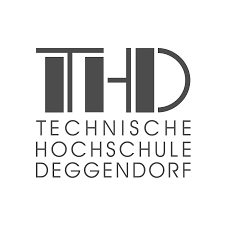Study Cybersecurity in Germany in 2025/2026

Contents
If you're the person your family always turns to for tech support, or if solving technical problems feels fun and rewarding to you, then cybersecurity might be the right path for you. This field is perfect for people who enjoy problem-solving and have a strong interest in computers and technology.
In this article, we’ll explore why cybersecurity is a great field to study in Germany, what kind of students succeed in it, what courses are available, the career options after graduation, and more.
Int. Study Programs
Universities
Cities
Why Choose Germany To Study Cybersecurity?
Germany has proven itself to be an excellent study destination for students over the years. Many tuition-free programs and a variety of courses are taught in English. This provides quality education at an affordable price. This makes it a safe and welcoming option for students from around the world.
Here is a summary of why Germany is an attractive student destination:
- Cutting-Edge Technology: Germany is at the forefront of technological advancements. This means students have access to state-of-the-art facilities and the latest in cybersecurity research.
- Affordable Education: German universities are renowned for their rigorous academic standards, which remain uncompromised even in tuition-free public university courses.
- Diverse Cultural Experience: Germany is a melting pot of cultures, providing a rich international experience. You'll interact with students from all over the world, broadening your perspectives.
- Employment Opportunities: With Germany's robust economy and numerous tech companies, the job market for cybersecurity experts is thriving. The country is also actively working to make it more accessible for students to stay and work after graduation.
Overview of Cybersecurity Degrees in Germany
Cybersecurity degrees in Germany are available at all academic levels. Bachelor’s, Master’s, and even Ph.D. programs. So, no matter where you are in your education, you can find a course that fits your goals.
These programs cover many important topics, including network security, cryptography, ethical hacking, and information security management. This wide range of subjects helps you build a strong foundation in the field and prepares you for different career paths.
- A Bachelor’s degree in cybersecurity usually takes three to four years to complete. It builds a strong foundation in computer science while introducing core topics in cybersecurity.
- A Master’s degree is more specialized and typically lasts two years. It allows students to explore advanced subjects, gain practical experience, and even take part in research projects.
- For those aiming for an academic or highly specialized career, a Ph.D. in cybersecurity is the next step. These programs involve deep research and often contribute to new developments in the field.
Top Cybersecurity Courses in English Language To Study in Germany
Best Universities in Germany for Cybersecurity
Several universities in Germany are renowned for their cybersecurity programs. Here are some of the best cybersecurity universities in Germany to consider:
Technische Universität München (TUM)
- TUM offers a Master’s program in IT Security and Privacy Management, focusing on both technical and legal aspects of cybersecurity.
Universität des Saarlandes
- Known for its Center for IT-Security, Privacy and Accountability (CISPA), offering cutting-edge research opportunities in cybersecurity.
Karlsruhe Institute of Technology (KIT)
- Offers a comprehensive Master’s program in Cybersecurity with a strong emphasis on research and practical application.
Hasso Plattner Institute (HPI)
-
The Hasso Plattner Institute (HPI), which is part of the University of Potsdam, offers a unique Master’s program in Cybersecurity Engineering. It is well known for its strong focus on high-quality research and teaching.
Career Paths for Cybersecurity Students in Germany
Graduates with a cybersecurity degree from a German university have many career options. Here are some of the most sought-after roles for cybersecurity professionals in Germany:
Security Analyst
- Role: Security analysts monitor and analyze an organization’s security infrastructure. They identify and respond to security breaches, perform vulnerability assessments, and recommend security improvements.
- Opportunities in Germany: The need for cybersecurity professionals in Germany is rising. From tech startups to government bodies, many organizations depend on security analysts to protect their data and prevent cyber threats.
Penetration Tester
- Role: Penetration testers, also called ethical hackers, help protect computer systems by simulating cyberattacks. Their job is to find weak points in a system so they can be fixed before real hackers try to take advantage of them.
- Opportunities in Germany: Many German companies, including leading automakers and financial institutions, hire penetration testers to ensure their systems are robust against cyber threats.
Security Consultant
- Role: Security consultants provide expert advice to organizations on how to protect their information systems. They conduct security audits, develop security strategies, and help implement security solutions.
- Opportunities in Germany: Cybersecurity is becoming a top priority for businesses in Germany. Because of this, companies need consultants to guide them through the challenges of online threats and legal requirements.
Want to explore more tech-related degrees like cybersecurity, data science, or computer science? Browse our full list of study programs in Germany to find the best fit for your interests and career goals.
Cybersecurity-Related Degree Programs in Germany
If you're interested in cybersecurity but want a broader perspective to keep your career options open, there are several related fields that share similar skills and knowledge base. These alternatives can provide additional career flexibility and diverse opportunities. Here are some of the careers you might want to consider:
Software Development
- Overview: Software developers design, build, and maintain software applications. They are responsible for writing code, debugging, and ensuring that software solutions are efficient and secure.
- Relation to Cybersecurity: Many principles of cybersecurity, such as secure coding practices and vulnerability management, are integral to software development. Understanding cybersecurity can help developers create more secure software and prevent breaches.
Network Administration
- Overview: Network administrators manage and maintain computer networks within an organization. They ensure that networks run smoothly, securely, and efficiently and address any issues that arise.
- Relation to Cybersecurity: Network security is a critical aspect of cybersecurity. Network administrators implement security protocols, monitor for suspicious activity, and respond to security incidents to protect the integrity and confidentiality of data.
Data Science
- Overview: Data scientists analyze and interpret complex data sets to help organizations make informed decisions. They use statistical techniques and machine learning algorithms to extract insights from data.
- Relation to Cybersecurity: Data scientists play an important role in cybersecurity. They analyze security data to spot patterns of malicious activity and create models that can help predict and stop cyber threats before they happen.
Demand for Cybersecurity Experts in Germany
Germany's rapid digital transformation has significantly increased the demand for cybersecurity experts. Here are the key factors that could motivate you to study cybersecurity in Germany and then go on to addressing these issues within the field:
Rising Cyber Attacks
-
A study by Bitkom found that 75% of companies in Germany faced cyberattacks in the past year. More than half of them saw these attacks as serious threats to their survival. This shows just how important strong cybersecurity has become.
Skills Gap
-
There aren’t enough trained cybersecurity experts in Germany. A lot of companies struggle to find people who can manage complex threats. With 82% of businesses expecting more attacks soon, the need for talent is growing fast.
Investment in IT Security
- Even though cyber threats are on the rise, many companies are still not investing enough in IT security. Bitkom reports that companies spend only 14% of their IT budget on security. The Federal Office for Information Security suggests spending at least 20%. This gap shows that many businesses still do not see the risks.
Germany's commitment to technological advancement necessitates a robust cybersecurity framework, making the demand for skilled professionals in this field more crucial than ever.
Admissions and Application for Cybersecurity in Germany
Germany offers two main admission sessions for both Bachelor's and Master's programs: the Winter and Summer Semesters. If you're navigating the application timeline or just starting to explore what studying in Germany involves, check out our complete guide to studying in Germany. It covers everything from admission deadlines to funding and student life.
Here's a breakdown of each:
Winter Semester
- Starts: Typically in September or October.
- Application Deadlines: Usually between May to July.
- Mostly for: Bachelor's programs, though some Master's programs also admit students.
Summer Semester
- Starts: Around March or April.
- Application Deadlines: Generally from December to January.
- Available for: Master's programs, with some Bachelor's programs offering admissions.
General Requirements for International Students
- Bachelor's Programs: Require a recognized school leaving certificate. Our StudyBuddy All-in-One Quiz can help you find study programs that match your current qualifications and your interests.
- Master's Programs: Require a relevant undergraduate degree. The requirements can differ for each program and you can use the StudyBuddy Program Database to find more in-depth information.
- English Proficiency: Demonstrated through tests like IELTS or TOEFL for English-taught programs.
- Additional Documents: CV, letters of motivation, and sometimes letters of recommendation.
- Financial Proof: Evidence of sufficient funds to cover living expenses in Germany.
- Program-Specific Requirements: Some universities may have specific prerequisites and additional documentation requirements.
Can You Study Cybersecurity for Free in Germany?
In Germany, many public universities offer tuition-free education, even for cybersecurity programs. This applies to both bachelor’s and master’s degrees. Students do need to pay a semester fee, which covers things like administration and local transport. This fee is usually between €100 and €200, depending on the university.
Tuition Fees for International Students
-
Some states and universities in Germany have started charging tuition fees for non-EU students. However, these fees are still much lower than in many other countries. It’s important to check the rules of the specific university and state to know exactly what fees apply.
Living Expenses
- Apart from tuition fees, the primary costs you will need to cover are your living expenses. This includes accommodation, food, health insurance, and other personal expenses. This is where your blocked account money comes into play, and this is the money you will spend on your living expenses.
Blocked Account
- To ensure you have sufficient funds to support yourself, international students typically need to open a blocked account (Sperrkonto). This account must hold a predetermined amount of money, which you can withdraw monthly to cover your living expenses. The blocked account is a crucial step in securing your student visa and demonstrating your financial ability to study in Germany.
Financial Aid To Study Cybersecurity in Germany
For international students studying in Germany, financial aid options include:
- University Scholarships: German universities offer scholarships based on academic merit or financial need, covering tuition fees and living expenses.
- Government Scholarships: Organizations like DAAD offer scholarships that cover tuition, living costs, and other expenses for international students.
- Company Sponsorships: Many German companies offer support to students through sponsorships and grants. This can include financial aid, internship opportunities, and help with thesis projects. These partnerships make studying in Germany more affordable and help students build valuable connections.
- Working Student Jobs: Germany offers special “working student” roles just for university students. These jobs let you gain hands-on experience while earning money to support your studies.
Germany offers top-quality education, a strong job market, and a rich cultural experience. Studying cybersecurity here opens doors to exciting career opportunities through excellent universities and real-world experience.
FAQ
What are the language requirements to study Cybersecurity in Germany?
The required language qualifications will vary depending on whether your chosen program is English or German.
If you choose to study a program in English, here's what you'll need for these programs:
- IELTS (International English Language Testing System)
- TOEFL (Test of English as a Foreign Language)
- Cambridge English Qualifications
If you are interested in studying Cybersecurity courses in German, here are the language requirements you will need to get admission:
- TestDaF (Test Deutsch als Fremdsprache)
- DSH (Deutsche Sprachprüfung für den Hochschulzugang)
- Goethe-Zertifikat
For more information on language requirements, please refer to the specific program you are interested in, as the requirements may vary slightly.
What are the visa requirements for Cybersecurity students?
If you're from the EU, EEA or Switzerland, you don't need a visa. But if you're from outside these regions, you'll need one. There are two types: the Student Applicant Visa for those who haven't been admitted to a university yet and the Student Visa for those who have.
To get your visa, first get accepted to a German university. Then make an appointment at your home country's German embassy or consulate. You'll need to prepare several documents: a completed visa application form, a valid passport, your university acceptance letter, proof of financial resources (such as a blocked account with approximately €11,904), proof of health insurance, academic records, a letter of motivation and proof of language proficiency.
Can international students work in Germany post-graduation?
At the end of your studies, you can apply for an 18-month Job Seeker Visa to look for a job that's a good fit for your qualifications. During this period, you can work in any job to support yourself while you search for a position related to your field of study.
You can then apply for either an EU Blue Card or a work permit once you've found a job that matches your qualifications. The EU Blue Card is a great option for high-skilled workers and offers benefits like a faster path to permanent residency. To qualify, you generally need a job offer with a minimum salary of around € 56,800 per year. If you don’t qualify for the Blue Card, you can apply for a regular residence permit for employment. This means you need to have a job offer that matches your degree.
After working in Germany for a certain amount of time (usually 33 months with an EU Blue Card or 21 months if you have good German language skills), you can apply for a permanent residence permit, which allows you to live and work in Germany indefinitely.
This might also be of interest to you

Summer Semester in Germany: Your Complete Guide for April 2026 Intake
Thinking about studying in Germany but missed the October deadline? The summer semester might be your perfect opportunity. While most international...

Why More Indian Students Are Choosing Germany Over the USA
In the last decade, Germany has become one of the fastest-growing study destinations for Indian students. While the USA once dominated the dreams of...

Top Courses for Indian Students in Germany vs USA (2025 Guide)
Studying abroad is a dream for many Indian students, but choosing the right country and course can be confusing. The United States and Germany are...

Germany vs USA: Work After Study Options for Indian Students (2025 Guide)
When you're choosing where to study abroad, it's not just about the university name or the country hype. For many Indian students, the big question...

5 Cheapest Countries to Study Abroad for Indian Students (2026 Guide)
Studying abroad doesn't have to drain ₹40-60 lakhs from your family's savings. Five countries offer world-class education for under ₹10 lakhs per...

Germany vs USA: Which Is Better for Indian Students in 2025?
Choosing where to study abroad is a big deal, especially for Indian students. You're not just picking a country; you're deciding to move far from...

Germany Welcomes Displaced Harvard Students: A New Academic Home
In a move that’s left thousands of students in shock, the U.S. government has revoked Harvard University’s certification to enroll international...






